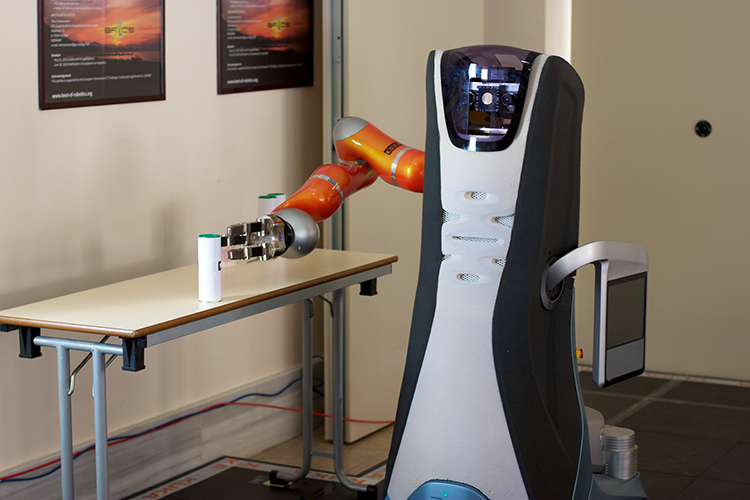Majority of Ireland willing to allow ‘care robots’ to look after elderly, new study finds
Posted 31 August, 2023

More than 70% of the Irish public would be willing to allow ‘care robots’ to look after the elderly, according to new research.
Many countries are experiencing declining birth rates and aging populations – increasing the risk that there will be a shortage of caregivers in the future.
Technological interventions in the form of robots that provide home care services appear to be a promising solution to this problem.
However, it is suspected that the ethical issues surrounding the use of such robots may be obstructing the implementation of this technology.
An international team of researchers from Japan, Ireland and Finland have now investigated acceptance among older people, family caregivers, and care staff on the use of care robots to address this concern.
The study, (opens in a new window)published in the journal Archives of Gerontology and Geriatrics, found that the willingness to use care robots was highest in Japan (77.1%), followed by Ireland (70.3%), and was lowest in Finland (52.8%).
Although care robots are being developed and improved at a rapid pace, their social acceptance has been limited according to the team behind the new findings.
“Today, in Japan’s super-aged society, various care robots, including monitoring cameras, have been developed and marketed to compensate for the shortage of care staff and to alleviate their stress,” said Professor Sayuri Suwa, Chiba University.
“However, there are no discussions among users—older people, family caregivers, and care staff—and developers regarding the willingness to use care robots, the protection of privacy, and the appropriate use of personal information associated with the use of care robots.
“The desire to improve this situation and to promote appropriate utilization of care robots beyond Japan was the impetus for this research.”
Led by Professor Sayuri Suwa, researchers involved with the study, including (opens in a new window)Dr Naonori Kodate from the UCD School of Social Policy, Social Work and Social Justice, conducted a cross-sectional study across Japan, Ireland, and Finland.
The team examined the ethical issues that could affect the willingness to use a care robot and conducted a survey between November 2018 and February 2019 among older people, their family caregivers, and professional caregivers.
Analysing over 1,130 responses, comprised of 664 from Japan, 208 from Ireland, and 260 from Finland, the team was able to demonstrate a correlation between ethical perceptions and social implementation of care robots across three countries with different geographies, demographics, cultures, and systems.
“From our results, we can infer that social implementation of care robots can be promoted if developers and researchers encourage potential users to participate in the development process, proposed in the form of a co-design and co-production concept,” said Professor Suwa.
“We hope that the process of developing care robots will be improved to contribute to human well-being in a global aging society.”
By: David Kearns, Digital Journalist / Media Officer, UCD University Relations
To contact the UCD News & Content Team, email: newsdesk@ucd.ie
Latest
- Taoiseach announces State Funding for student accommodation with proportion held at discounted rents for students most in need
- Speaker Emerita Nancy Pelosi receives honorary degree for lasting legacy to public service
- Video series to build AI policy capabilities among leaders launched by UCD Centre for Digital Policy
UCD academics on The Conversation
- Opinion: The leap year is February 29, not December 32 due to a Roman calendar quirk – and fastidious medieval monks
- Opinion: Nigeria’s ban on alcohol sold in small sachets will help tackle underage drinking
- Opinion: Nostalgia in politics - Pan-European study sheds light on how (and why) parties appeal to the past in their election campaigns






